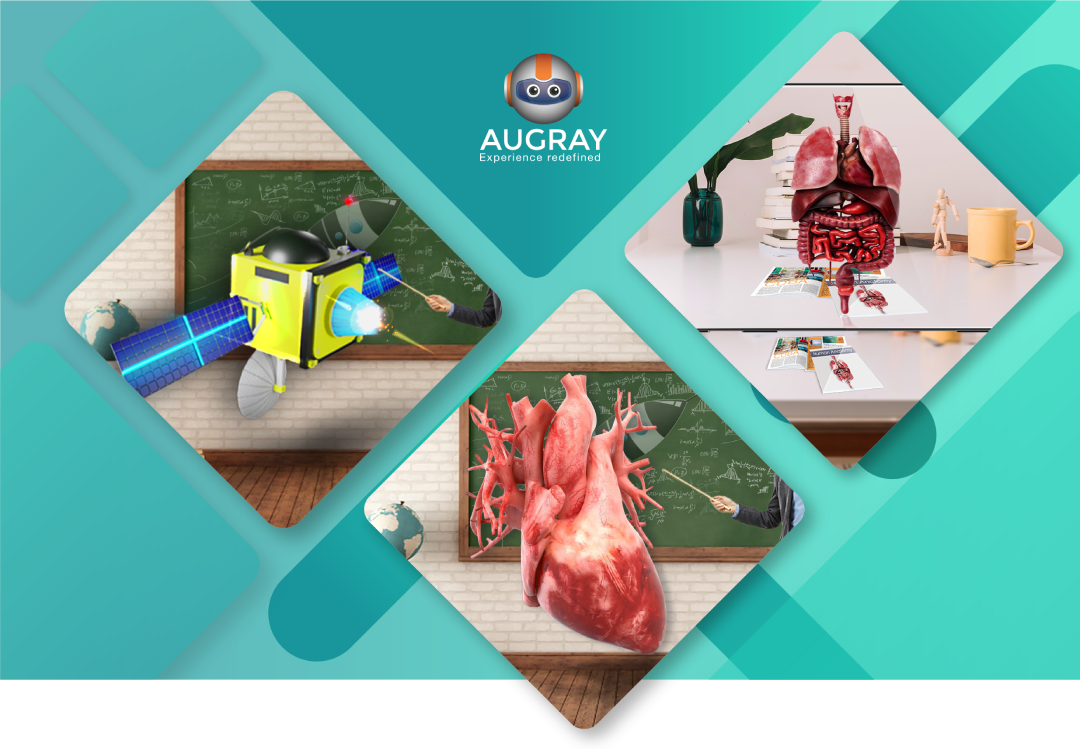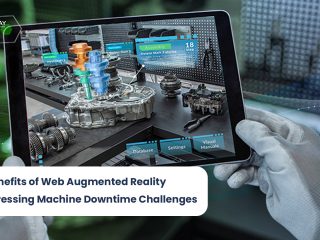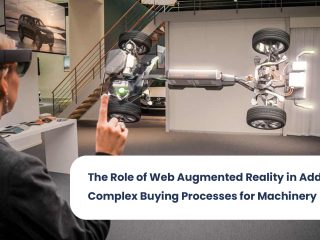The current COVID-19 scenario has accelerated the pace of digitization in the education sector and technology innovations are changing the methods of education. Industry research predicts EdTech is expected to reach $680.1 billion by 2027, growing at an annual rate of 17.9%. Augmented Reality is the hot and most significant trend in EdTech. The value for AR in EdTech is expected to exceed $5.3 billion by 2023, presenting a pool of opportunities for educational tech start-ups, businesses, and educational institutions.
EdTech companies are digitizing the K-12, college, professional certifications, and competitive learning. They have realized that AR/VR in EdTech acts as the value-added service, enhancing engagement in internet-powered training. AR/VR allows learners to visualize and explore complex concepts in a distraction-free, real-world environment and let them connect with concepts easily. AR/VR can democratize education and offer a personalized tailored learning experience for learners.
Here are the few benefits of AR/VR in EdTech
- Effective learning and boosts retention: Learning with simulations and full immersion will enhance the learning process and facilitate learners to connect multiple complex concepts easily
- Improved learner engagement: Gamified and interactive experience can make learning fun, and effortless while keeping learner engaged throughout.
- Experiential and experimental learning: Visualize 3D models and precise simulation of theories can help learning the concept easily. Also, learners can design different scenarios and check the practicality of theory virtually.
- Personalized learning: Based on learning and behavior patterns, AR/VR can personalize learning and upskill learners.
Content remains the key and vital parameter differentiating EdTech platforms. With AR/VR, the right content can be delivered through the any channel enhancing value of EdTech platforms. Interactivity is the prime attraction for AR/VR in EdTech and integration of AI into the system can offer endless possibilities including behavior tracking. Enabling AR can make learning more accessible, convenient, and remote.
Today more than 90% of teens have access to smartphone as per Pew Research Centre.
Deployment of AR does not require special equipment’s and students can easily access this technology using smartphone
Edtech would witness the growing adoption and interest in AR/VR as new-age learners are coming into the device with a curious and open mind. Learners using AR/VR can fully understand and process information without much cognitive load. Using VR technology, virtual laboratories can be set up for students with minimal upfront investment.
Despite the benefits, gaps exist in the AR/VR adoption on the EdTech platform. The major hurdle is short of knowledge about AR/VR in the education ecosystem. AR/VR being a new technology demands acceptance from the students, parents, and teachers.
- Learning Ability Variation: Although marker-based procedural virtual learning can guide learners, not everybody can be receptive to it and proper training is required.
- Lack of technical Knowledge: EdTech platforms should keep in mind about tech-illiterate population/parents while launching AR/VR services.
- Inadequate Content and Content Creation: Most content available now is not deep enough. Also, AR/VR content creation can be time taking as platforms need to bring relevant content for all kinds of learners and use cases.
- Lack of Training: Only open-minded tutors can adapt to this new technology and ample tutor training is very important in AR/VR.
Augray identifies that the EdTech platform by incorporating AR/VR can redefine the future of learning. Learners are looking out for personalized, interactive, feel-real, and immersive learning experiences. We believe AR/VR in integration with AI and collaborative learning can fill the gaps in e-learning.
AR is becoming more accessible with the increasing adoption of mobile technologies. EdTech platforms need to identify this opportunity and take steps in this direction. Augray AR/VR solution enables EdTech platforms to build and scale complex, customizable AR/VR content on the go.
Have an AR/VR concept in mind? We are here to discuss, get in touch with us now.










